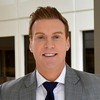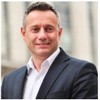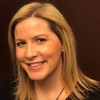
HR and Workforce Consultant and founder, Glass Bead Consulting.
The People Analytics Podcast is facilitated by Max Blumberg (Visiting Professor, Leeds University Business School) and David Green (Global Director People Analytics, IBM).
This series of eight podcasts provides a great overview of where People Analytics is today. It is a blend of leading academics, experienced people analytics practitioners from industry, and leaders from technology and consulting.
Interestingly, all the experts have experience of academic research and solving problems in organisations, and many have applied their experience in areas such as economics and marketing to solving HR/people challenges.
Among the guests are John Boudreau and Alec Levenson, both from the University of Southern California; the well-known author, Bernard Marr; and practitioners who are leading people analytics teams on the ground at organisations such as Facebook, Nestle and USA Today. It also includes the candid view of key industry players such as IBM, Deloitte and Microsoft.
Having enjoyed listening to all the podcasts, there are some themes that jump out for me:
- Start with business problems and test your hypotheses. Don’t go fishing for problems to solve.
- Keep a look out for new technology developments, from natural language processing to Artificial Intelligence and Organisational Network Analysis.
- Gain support from the C-suite by focussing on metrics that impact competitive advantage directly, and less on indirect ROI and external benchmarks.
- Contribute to the decisions about the future of work, and on what skills and competencies future HR functions will need.
Seven of these podcasts have been conducted by Max Blumberg, who always asks well-considered questions and conveys his own expertise in many of these subjects. Many thanks to Max and all the speakers for contributing to this informative podcast series.
 Following episodes 1-8, which constituted the first season, season 2 opens with episode 9 - “What Have HR Standards Ever Done for Us?” is a great question and a clever Monty Python reference. Max speaks with John Boudreau, Professor of Management, University of Southern California. Other industries, functions and disciplines have agreed standards, so why do we struggle in HR? John refers to ‘rubber plasticity’, which might be stretching the point a bit but illustrates a very good argument. With people-related measures, there is no such agreement on basic metrics such as turnover or engagement. Of course, the holy grail in people management is having predictive measures; for example, what actually predicts turnover? But we are a long way from agreeing that. John and Max discuss the benefits, and risks, of having ‘predictive measures’ vs ‘practice standards’.
Following episodes 1-8, which constituted the first season, season 2 opens with episode 9 - “What Have HR Standards Ever Done for Us?” is a great question and a clever Monty Python reference. Max speaks with John Boudreau, Professor of Management, University of Southern California. Other industries, functions and disciplines have agreed standards, so why do we struggle in HR? John refers to ‘rubber plasticity’, which might be stretching the point a bit but illustrates a very good argument. With people-related measures, there is no such agreement on basic metrics such as turnover or engagement. Of course, the holy grail in people management is having predictive measures; for example, what actually predicts turnover? But we are a long way from agreeing that. John and Max discuss the benefits, and risks, of having ‘predictive measures’ vs ‘practice standards’.
 Episode 10 is recorded live and in Person at People Analytics Forum 2016, with Max talking with Jordan Pettman, Global Head of People Data, Analytics and Planning at Nestlé, about “Building Global Enterprise Analytics at Nestlé”. This conversation gives a practical perspective on the demands of a People Analytics leader in a complex organisation with over 300,000 people. There is of course the question of data standards across such a diverse group of businesses in 194 countries. Jordan explains how he has tried to balance the need for global standards on critical measures – like headcount – with local business requirements. Of real interest to listeners will be the conversation about skills and careers. Jordan explains how his consulting skills have been priceless in stakeholder management. One of his challenges is maintaining a core team with a blend of skills including strategic workforce planning, data science, and an organisational psychologist whose job is to drop ‘science bombs on HR’!
Episode 10 is recorded live and in Person at People Analytics Forum 2016, with Max talking with Jordan Pettman, Global Head of People Data, Analytics and Planning at Nestlé, about “Building Global Enterprise Analytics at Nestlé”. This conversation gives a practical perspective on the demands of a People Analytics leader in a complex organisation with over 300,000 people. There is of course the question of data standards across such a diverse group of businesses in 194 countries. Jordan explains how he has tried to balance the need for global standards on critical measures – like headcount – with local business requirements. Of real interest to listeners will be the conversation about skills and careers. Jordan explains how his consulting skills have been priceless in stakeholder management. One of his challenges is maintaining a core team with a blend of skills including strategic workforce planning, data science, and an organisational psychologist whose job is to drop ‘science bombs on HR’!
 In episode 11, Max speaks to Ross Sparkman, Global Head of Strategic Workforce Planning and HR Analytics at Facebook, in “Workforce Planning for Rapid Growth/Downscaling”. When Ross spoke at People Analytics World in London this April, the room was full. Facebook is one of the great growth stories of our time, from zero in 2004, to a market cap of over $400 billion today. In strategic workforce planning, what do you do differently if you are in the fortunate position to be in a high-growth situation? Ross explains how to maintain an optimised workforce and the importance of using robust statistical models. An important aspect of the conversation is how to stay disciplined and focussed when your team includes researchers, analysts and consultants. One tip of many given by Ross, is work out what your vision for success is before embarking on building people analytics capability. I can’t wait to see him speaking at People Analytics Forum in November; I understand there will be some very new material being revealed. Watch this space.
In episode 11, Max speaks to Ross Sparkman, Global Head of Strategic Workforce Planning and HR Analytics at Facebook, in “Workforce Planning for Rapid Growth/Downscaling”. When Ross spoke at People Analytics World in London this April, the room was full. Facebook is one of the great growth stories of our time, from zero in 2004, to a market cap of over $400 billion today. In strategic workforce planning, what do you do differently if you are in the fortunate position to be in a high-growth situation? Ross explains how to maintain an optimised workforce and the importance of using robust statistical models. An important aspect of the conversation is how to stay disciplined and focussed when your team includes researchers, analysts and consultants. One tip of many given by Ross, is work out what your vision for success is before embarking on building people analytics capability. I can’t wait to see him speaking at People Analytics Forum in November; I understand there will be some very new material being revealed. Watch this space.
 In episode 12, Max speaks to Bernard Marr, CEO, Advanced Performance Institute, otherwise known as ‘Mr Big Data’. They discuss Strategic Enterprise Analytics - Keeping HR Relevant, which is increasingly a key challenge. Bernard and Max discuss an important question: why do many analytics and technology projects not always succeed? In their view, this is often because teams don’t start with a coherent strategy. Which incidentally, is a key topic of Bernard’s latest book, Data Strategy. Bernard stresses the importance of testing hypotheses: what are the big problems we need to solve? On the question of how to keep the analytics team disciplined, his rule of thumb is that 90% of energy should be spent on strategic goals, maybe 10% of time on finding correlations in existing data. They also cover the potential of Artificial Intelligence and its impact on decision making.
In episode 12, Max speaks to Bernard Marr, CEO, Advanced Performance Institute, otherwise known as ‘Mr Big Data’. They discuss Strategic Enterprise Analytics - Keeping HR Relevant, which is increasingly a key challenge. Bernard and Max discuss an important question: why do many analytics and technology projects not always succeed? In their view, this is often because teams don’t start with a coherent strategy. Which incidentally, is a key topic of Bernard’s latest book, Data Strategy. Bernard stresses the importance of testing hypotheses: what are the big problems we need to solve? On the question of how to keep the analytics team disciplined, his rule of thumb is that 90% of energy should be spent on strategic goals, maybe 10% of time on finding correlations in existing data. They also cover the potential of Artificial Intelligence and its impact on decision making.
Episode 13 is on How Microsoft Approaches People Analytics: Best Practices & Why Managers Matter, a three-way conversation between Max, Becky Thielen who leads Global Workforce Data Insights at Microsoft, and Jeremy Tyers, Head of International Business Development for Microsoft Workplace Analytics. Becky tells us that one of the advantages of people analytics now, compared to a few years ago, is speed. She gives an example of combining HR metrics and sales metrics from 5 systems that took 3 weeks, which would have taken many months a few years ago. This is important in responding rapidly to business change. Another important topic, given this is Microsoft, is understanding how their product offering will change the way we work. Speaking to Cortana directly about our HR data is an exciting innovation. “Cortana, what is the engagement pulse score in the sales teams at the moment?”
 Episode 14 is about “Strategic People Analytics”, and Max speaks with Alec Levenson, Senior Research Scientist at the Center for Effective Organizations at the University of Southern California. Alec gave an excellent keynote speech at People Analytics World in London this year. It is always refreshing to see how individuals with a non-HR background apply their expertise in HR, and Alec brings his background as an economist to his work. The challenge for modern HR? “There’s often a chasm between the HR process and the original strategic goals of the organisation.” (Yes folks, being a systems thinker can be both a blessing and a burden!) It’s not that HR people are mischievous or incompetent, but this can happen for lots of reasons, including compliance. Alec gives some great tips, including why we should never box ourselves in with the ROI metric relating to people, and “HR Process is the enemy”. We need to understand what behaviours we want to change that lead to competitive advantage before perfecting HR processes. This is a fascinating conversation and highly recommended.
Episode 14 is about “Strategic People Analytics”, and Max speaks with Alec Levenson, Senior Research Scientist at the Center for Effective Organizations at the University of Southern California. Alec gave an excellent keynote speech at People Analytics World in London this year. It is always refreshing to see how individuals with a non-HR background apply their expertise in HR, and Alec brings his background as an economist to his work. The challenge for modern HR? “There’s often a chasm between the HR process and the original strategic goals of the organisation.” (Yes folks, being a systems thinker can be both a blessing and a burden!) It’s not that HR people are mischievous or incompetent, but this can happen for lots of reasons, including compliance. Alec gives some great tips, including why we should never box ourselves in with the ROI metric relating to people, and “HR Process is the enemy”. We need to understand what behaviours we want to change that lead to competitive advantage before perfecting HR processes. This is a fascinating conversation and highly recommended.
 For the penultimate episode, Max speaks with Kevin Moore, Head of People Analytics at Gannett (publishers of USA Today). Kevin explains his experience of “Setting Up HR Analytics at USA Today”. With a background in Marketing, Kevin describes how advances in predictive analytics in marketing, e.g. scoring leads and customer churn, are techniques now being leveraged in HR. Another example is customer segmentation, which is analogous with workforce segmentation. A great question from Max: how do you run a people analytics function on a limited budget? Kevin mentions using existing software and skills, and of course, make sure you have a CHRO who ‘gets it’ (although that can be hard to change if they don’t). A key skill for your analytics team is someone who is a good storyteller. Can we train up our data analysts and psychologists to be good at storytelling? Kevin believes it can it be learned. A useful example of probably the most common people analytics project is attrition. His tip is to tie attrition or high risk turnover model to ‘revenue at risk’. This will get C-suite traction. At Gannett, they use a “Coach, connect, retain” model, so once an individual is deemed to be at risk, the HR Business Partner and Manager have a targeted set of actions to try and retain them.
For the penultimate episode, Max speaks with Kevin Moore, Head of People Analytics at Gannett (publishers of USA Today). Kevin explains his experience of “Setting Up HR Analytics at USA Today”. With a background in Marketing, Kevin describes how advances in predictive analytics in marketing, e.g. scoring leads and customer churn, are techniques now being leveraged in HR. Another example is customer segmentation, which is analogous with workforce segmentation. A great question from Max: how do you run a people analytics function on a limited budget? Kevin mentions using existing software and skills, and of course, make sure you have a CHRO who ‘gets it’ (although that can be hard to change if they don’t). A key skill for your analytics team is someone who is a good storyteller. Can we train up our data analysts and psychologists to be good at storytelling? Kevin believes it can it be learned. A useful example of probably the most common people analytics project is attrition. His tip is to tie attrition or high risk turnover model to ‘revenue at risk’. This will get C-suite traction. At Gannett, they use a “Coach, connect, retain” model, so once an individual is deemed to be at risk, the HR Business Partner and Manager have a targeted set of actions to try and retain them.
 In the season finale, David Green talks to Laurence Collins, Global Lead for HR Transformation & Workforce Analytics at Deloitte, to discuss “People Analytics, Future of Work.” David chairs the People Analytics World conference in London in April, as well as People Analytics Forum in November, and is Global Director for People Analytics at IBM. In this conversation, Laurence raises the stakes for People Analytics, by asking: “How can you survive the next 3 or 4 years if you are not using insight from people to make business decisions?” Considering their respective places of work, the conversation was pretty candid. For example, questioning the ROI on the recent stampede by HR to cloud-based systems, are we in a better place to make people-based decisions after this investment? I am also hearing this question a lot in my work. HR buyers need to really think through what outcomes they require before buying software. They also discuss where might People Analytics sit in future organisation, and of particular interest to me, what is the role of analytics in moving to the next generation of HR operating models, and how might this impact the HR Business Partner role? Fascinating stuff and well worth a listen.
In the season finale, David Green talks to Laurence Collins, Global Lead for HR Transformation & Workforce Analytics at Deloitte, to discuss “People Analytics, Future of Work.” David chairs the People Analytics World conference in London in April, as well as People Analytics Forum in November, and is Global Director for People Analytics at IBM. In this conversation, Laurence raises the stakes for People Analytics, by asking: “How can you survive the next 3 or 4 years if you are not using insight from people to make business decisions?” Considering their respective places of work, the conversation was pretty candid. For example, questioning the ROI on the recent stampede by HR to cloud-based systems, are we in a better place to make people-based decisions after this investment? I am also hearing this question a lot in my work. HR buyers need to really think through what outcomes they require before buying software. They also discuss where might People Analytics sit in future organisation, and of particular interest to me, what is the role of analytics in moving to the next generation of HR operating models, and how might this impact the HR Business Partner role? Fascinating stuff and well worth a listen.
I hope you enjoyed listening to this excellent series as much as I did. Many of the people in this podcast series were speakers at Tucana events in 2017, and the next event is the People Analytics Forum on 29-30 November in London. I hope to see many of you there to share your examples and thoughts on the exciting field of People Analytics.
Any opinions, findings, and conclusions or recommendations expressed in this material are those of the author(s) and do not necessarily reflect the views of Tucana.




